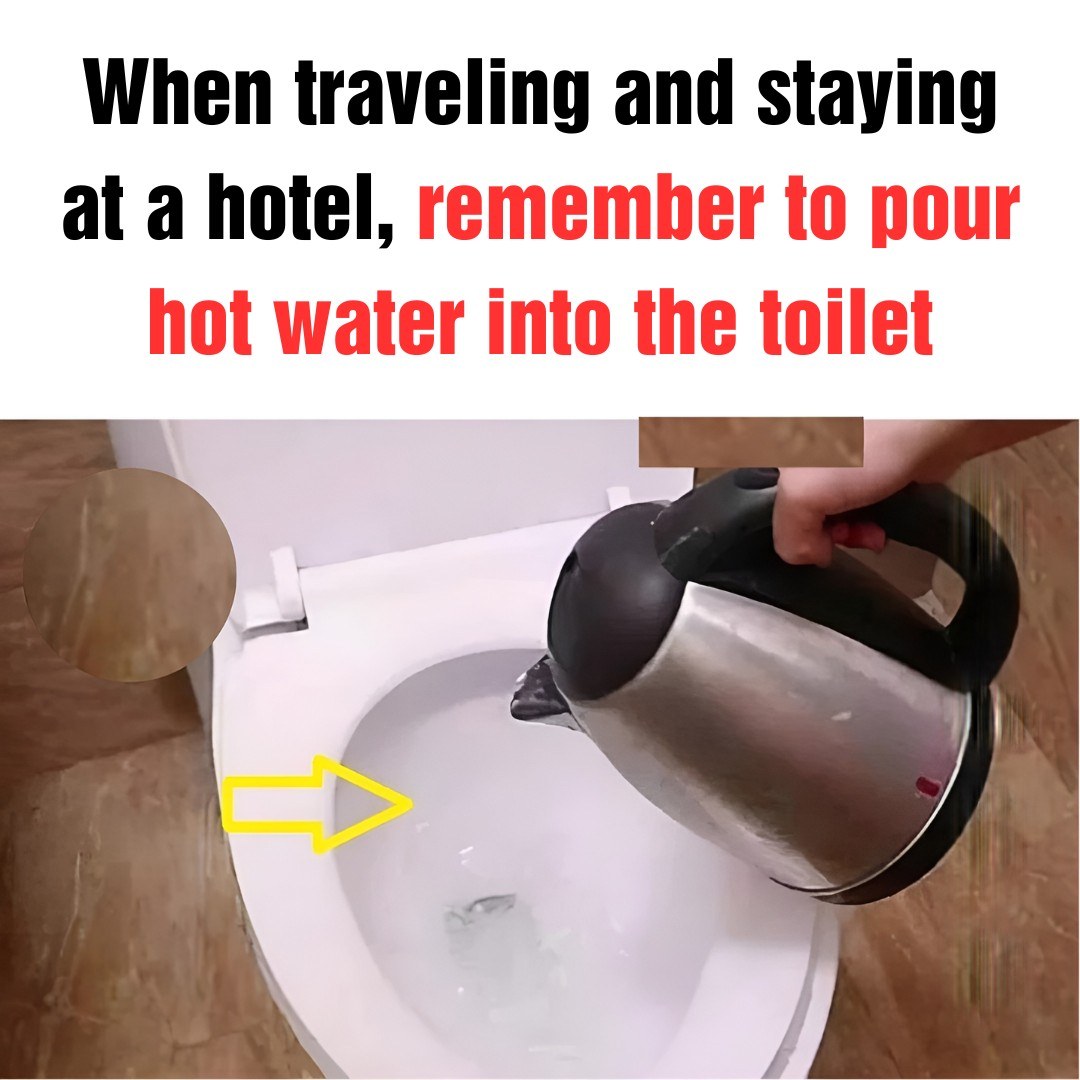Why should you boil water and pour it into the toilet when checking into a hotel room?
After checking in, it’s advisable to use an electric kettle to boil water and pour it into the toilet, according to advice from long-serving hotel staff.
According to Sohu, this advice comes from experienced hotel housekeeping staff in China. If you’re sure you won’t use the kettle at all, you can skip this step, but if there’s a possibility you’ll use it for drinking water or making tea, it’s best to follow this advice to ensure health safety.
This is particularly important when staying in budget hotels or guesthouses.
Why boil water and pour it into the toilet upon check-in?
According to the aforementioned staff member, after checking in, you should use an electric kettle to boil water and pour it into the hotel toilet.
This advice might raise some concerns. We’re often advised to be cautious when checking into a hotel room, checking for hidden recording devices, hidden cameras, inspecting the cleanliness of bedding, indoor slippers, towels, checking the room phone, TV, Wi-Fi network accessibility… The reasons for these checks are quite understandable. But why boil water and pour it into the toilet?
According to Sohu, electric kettles (kettles that boil water using electricity) are common appliances found in most hotel rooms, from budget to upscale, to meet guests’ needs for hot water. However, no one can be sure what the previous occupants used it for, and whether the hotel staff thoroughly cleaned it after they checked out.
Not all hotels ensure 100% cleanliness standards. In many budget hotels, staff may only clean the rooms superficially, without paying much attention to the safety of guests when using room amenities.
Meanwhile, many guests use electric kettles to cook instant noodles, make soup, boil seafood, or even as trash bins… Media outlets have often reported hotel staff finding all sorts of dirt, underwear of previous guests inside electric kettles.
Even when used for its intended purpose, if the kettle has been used for a long time and passed through many hands, it will accumulate a lot of dirt, breeding bacteria. Therefore, upon check-in, it’s advisable to rinse the kettle, boil water to sterilize it, and then pour it into the toilet or drain in the bathroom corner, contributing to the elimination of bacteria in these areas.
Why should you check under the bed when checking into a hotel room?
Usually, when checking into a hotel room, we’re often advised by staff to inspect everything to ensure it meets our expectations and standards, and if there’s any issue, they will rectify it.
To ensure the quality of your stay as well as your safety, many people tend to carefully examine everything around them, such as whether the bed linens are clean; if the TV, refrigerator are working, if the kitchenette is adequately equipped, if the bathroom is clean… but often overlook under the bed.
Why should you check under the bed when checking into a hotel room? Because this is where a lot of dust, hair, condoms, cigarette butts, food wrappers that the previous guests “forgot” or intentionally left behind may accumulate.
Under the bed could also be a “nest” for insects like ants, cockroaches, bugs…, directly affecting your skin and health. Many types of microorganisms and parasites, tiny as they are, could be the culprits behind your allergies, itching, rashes, and only then would you suspect their presence.
Under the bed in hotels, guesthouses sometimes also harbor valuable lost jewelry, abandoned pairs of shoes that the staff haven’t properly cleaned up. More dangerously, it could be where someone hides weapons, dangerous or troublesome substances, for you.
Therefore, checking under the bed when checking into a hotel room is quite important, serving to protect yourself.
Checking under the bed, bed linens is also a way to verify whether the hotel room you’re renting meets cleanliness standards. A bed with neatly arranged linens, a clean under-bed area, and no trash around are the most basic features of a hotel room meeting standards, only then should you consider other accompanying amenities.













